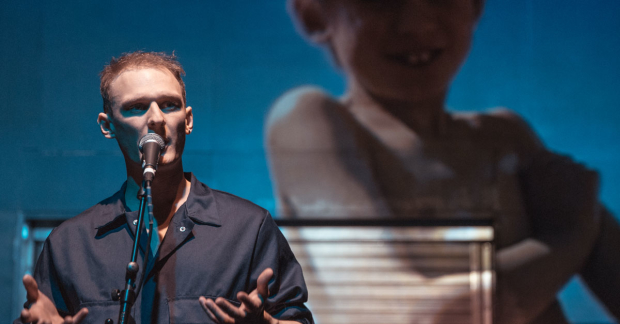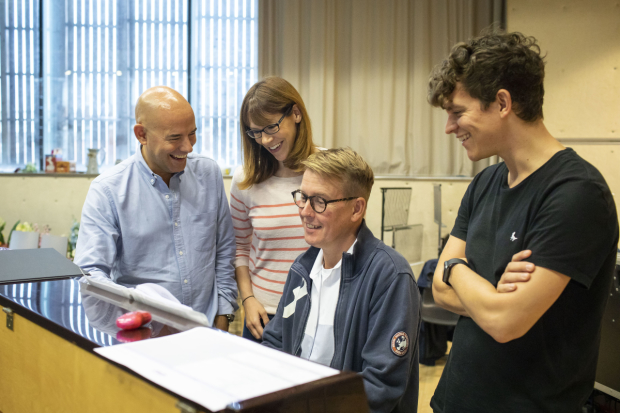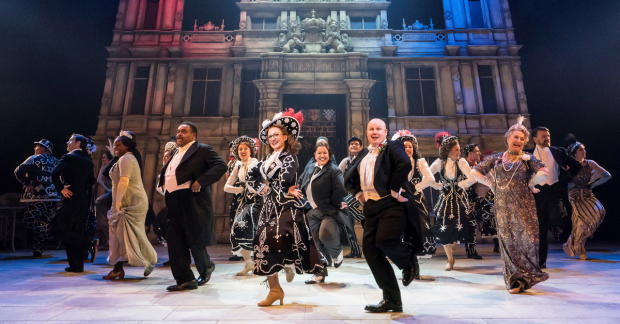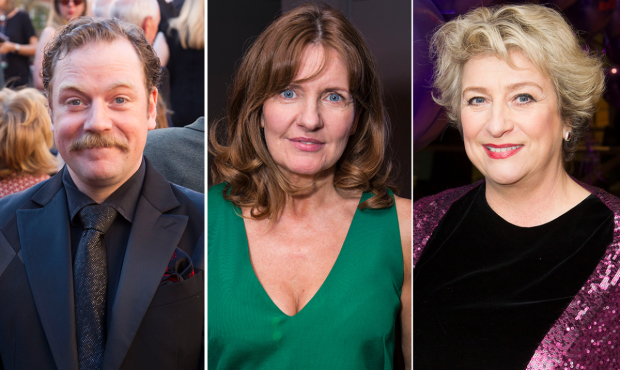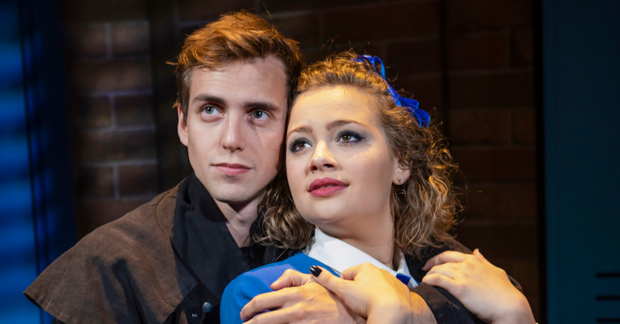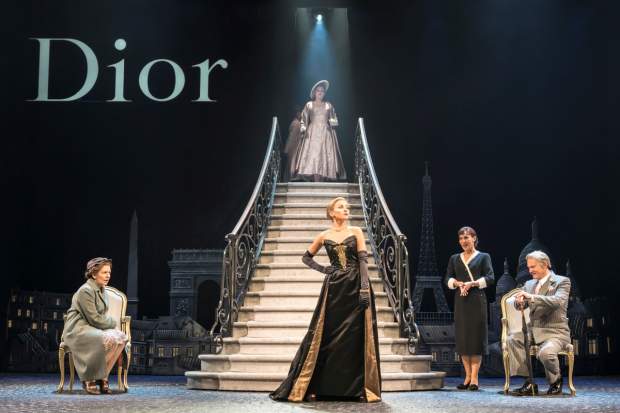Review: Flowers for Mrs Harris (Chichester Festival Theatre)
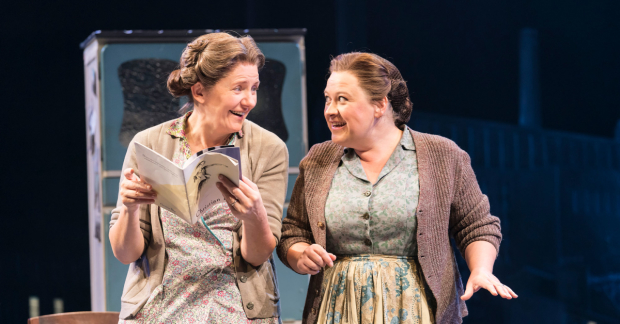
© Johan Persson
Flicking through one of her client's Christian Dior brochures, Mrs Ada Harris is immediately enchanted. Above the exquisite dresses on which she sets her heart runs an enticing slogan: "Every woman a princess". It cuts to the core of this real world, post-war fairytale.
Already a big success up in Sheffield, Daniel Evans has brought this heart-inflating new musical with him to Chichester. Adapted from Paul Gallico's 1958 novella Mrs 'Arris Goes to Paris, Rachel Wagstaff and Richard Taylor's trad tuner charts one lowly London charlady's efforts to scrimp and save enough cash to cross the channel and buy the designer dress of her dreams. It is a Cinderella story sewn into our world.
Ada Harris's transformation takes almost five years and it happens, not by magic, but with sacrifice and hard work. Set in bombed-out Battersea after World War Two, it shows us a world ruled by ration books in which everyone has to make do and mend; Clare Burt's careworn Mrs Harris most of all. She's practically perfect: the crack in her voice suggests someone chipped by time, but her pursed smile could "put a shine on anything".
At £400, a Dior dress equates to Mrs Harris' annual income and, while a lucky pools win gets her going, saving such a sum means taking on extra chores and cutting out little luxuries – a haircut here, a sweet treat there. Richard Taylor's score tinkles with industry and, being laced through the dialogue rather than unleashing big numbers, it seems to be saving its songs up for later.
If anything, Wagstaff's book extends further into fairytale. Paris, here, is a magical elsewhere – a mirror image of workaday London that turns the rigid British class system completely on its head. Lez Brotherston casts the two cities in iron – one up close and run-down; the other seen from afar, picture postcard perfect. His Dior-style dresses are jaw-dropping, so beautiful that Mrs Harris' eyes sparkle with aesthetic appreciation not social aspiration. Clever doubling means she meets her client's exact opposites: Louis Maskell plays a shambling photographer and a spick-and-span accountant, while Laura Pitt-Pulford goes from aspiring British actress to a glam French superstar who pines for normality. Mrs Harris's good deeds are, inevitably, repaid in full.
It's so neatly done that it almost goes too far. Wagstaff piles fairytale on fairytale – shy lovers come together, friends are reunited and a grief-stricken widow learns to let go. It's as sentimental as an MGM movie; a story so smooth it fills your throat with lumps. By the time Evans' own restrained and elegant staging bursts into bloom, it's too much for the tear ducts to take. Must be all that pollen…
But fairytales can also be mighty dangerous. Flowers for Mrs Harris is, deep down, a full-blown conservative pipe dream, and Mrs Harris herself an austerity postergirl. If Gallico's story looks sympathetic to the daily struggle it takes to get by, it is, in fact, the opposite; a fantasy that spins the possibility that double shifts and self-discipline, elbow grease and stoicism can bring about a brighter future. Mrs Harris' savings aren't just improbable, but all out impossible. As if a widowed charlady could cut back on fortnightly haircuts and give up ration coupons after five years of war – for a Dior dress. It's George Osborne's utopia; one number about ‘fixing the roof while the sun's shining' away from a musical budget speech. So, transfer for Mrs Harris? Only if it comes with a warning out front: 'Not every woman will become a princess'.



